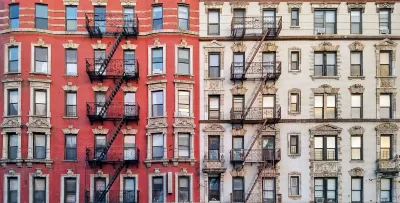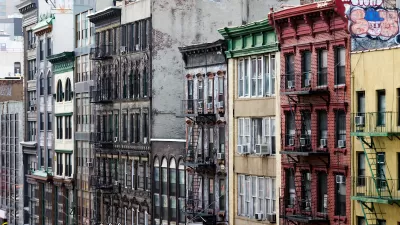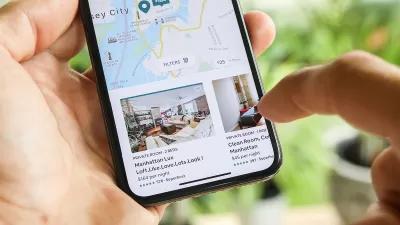Some owners are reluctant to put short-term rental units back on the long-term rental market, but the number of permitted units has dropped dramatically.

City leaders from around the country are watching New York City’s crackdown on short-term rentals, most of which were operating illegally for years until the city recently launched an effort to register properties and enforce strict regulations.
As Robbie Sequeira reports in Stateline, while many cities have imposed a variety of regulations on STRs, New York’s new rules go further than most, severely limiting the number of owners who can keep their units on the short-term market legally. “Hosts can get city approval to offer short-term rentals only if they are on the premises during the visitors’ stay, and if the number of guests is limited to two. That’s expected to severely limit the number of available rentals, since few hosts are willing to meet those requirements.” Meanwhile, “some state legislatures have protected Airbnb and property owners by forbidding certain city or county regulations.”
It remains to be seen if the approach will make a dent in the city’s long-term rental housing shortage. In August, Airbnb alone listed almost 22,000 short-term units. According to the city, the number of registered STRs was 800 at the beginning of December, but some owners continue listing their properties on alternative websites. “Jorge González, a researcher with the Urban Institute, a nonprofit think tank, said the success of New York’s crackdown will depend on whether hotels can pick up the slack.”
FULL STORY: Other cities take note as New York City tells Airbnb: Fuhgeddaboudit

Maui's Vacation Rental Debate Turns Ugly
Verbal attacks, misinformation campaigns and fistfights plague a high-stakes debate to convert thousands of vacation rentals into long-term housing.

Planetizen Federal Action Tracker
A weekly monitor of how Trump’s orders and actions are impacting planners and planning in America.

In Urban Planning, AI Prompting Could be the New Design Thinking
Creativity has long been key to great urban design. What if we see AI as our new creative partner?

How Trump's HUD Budget Proposal Would Harm Homelessness Response
Experts say the change to the HUD budget would make it more difficult to identify people who are homeless and connect them with services, and to prevent homelessness.

The Vast Potential of the Right-of-Way
One writer argues that the space between two building faces is the most important element of the built environment.

Florida Seniors Face Rising Homelessness Risk
High housing costs are pushing more seniors, many of them on a fixed income, into homelessness.
Urban Design for Planners 1: Software Tools
This six-course series explores essential urban design concepts using open source software and equips planners with the tools they need to participate fully in the urban design process.
Planning for Universal Design
Learn the tools for implementing Universal Design in planning regulations.
Gallatin County Department of Planning & Community Development
Heyer Gruel & Associates PA
JM Goldson LLC
City of Camden Redevelopment Agency
City of Astoria
Transportation Research & Education Center (TREC) at Portland State University
Jefferson Parish Government
Camden Redevelopment Agency
City of Claremont





























